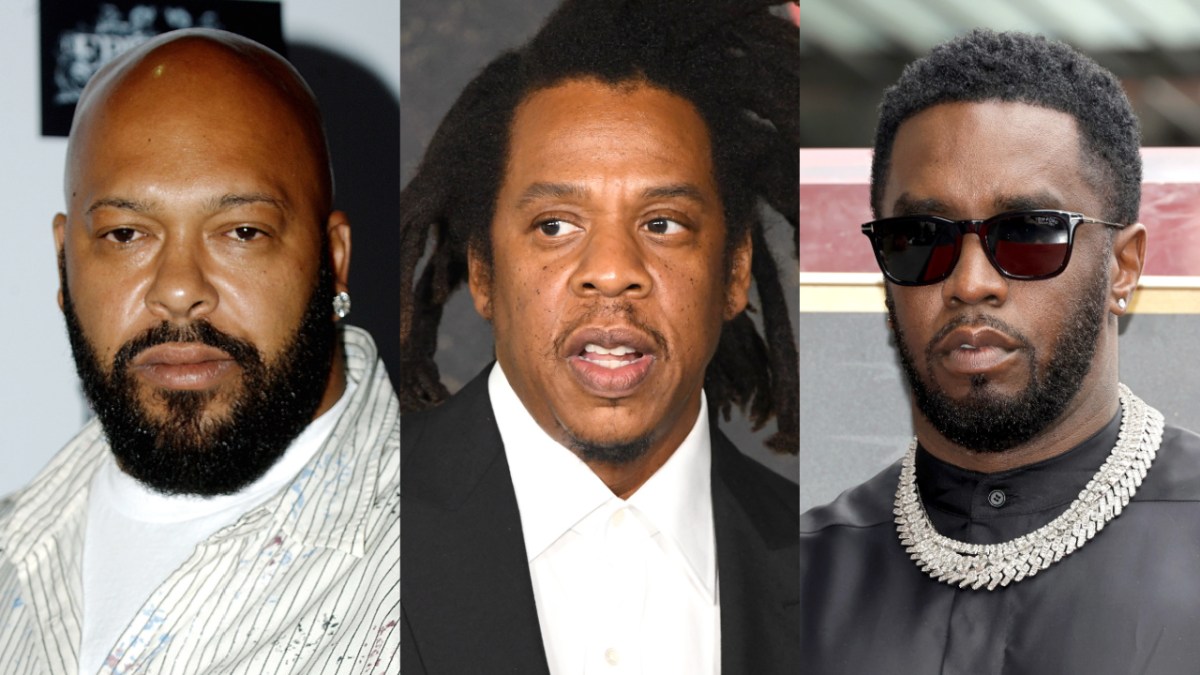Exposing Secrets of the Music Industry: Suge Knight’s Controversial Allegations
The music industry is no stranger to controversy, but the recent allegations brought forth by Suge Knight, former Death Row Records CEO, have stirred up deep and dark conversations. In a recent live interview with Chris Cuomo, Knight didn’t hold back in discussing some of the most disturbing practices he claims have been happening behind closed doors for years. He alleged that industry figures, including Sean “Diddy” Combs, have been involved in illicit, manipulative, and abusive activities designed to maintain control over young artists and that powerful figures above Diddy enabled such behaviors to flourish.

Knight’s interview began with claims that certain music industry figures orchestrated or participated in humiliating and degrading “tests” to exercise control over upcoming artists. He mentions a disturbing ritual, referred to as the “boiled egg test,” alleging that some influential artists were subject to these rituals as a test of loyalty. Although these claims are unverified, Knight insisted that these activities have been quietly accepted in Hollywood as a norm. He suggested that established artists, particularly those who hold influence over the industry, continue this behavior to exert control over newer talents, ensuring they are willing to abide by the unspoken rules of the entertainment world.
In his accusations, Knight specifically named artists like Snoop Dogg, Dr. Dre, and Jay-Z, claiming they have stayed silent on Diddy’s alleged behavior despite supposedly knowing about it. Knight suggested that the silence of these major artists stems from either complicity or fear of the powerful figures backing Diddy. According to him, those who stay silent indirectly enable a culture where control is gained through humiliation and abuse. This claim of a “silent conspiracy” has sparked discussions across the entertainment industry, raising concerns about how widely such alleged practices might be known and tolerated.

Knight also highlighted the role of Diddy’s mentors, including Russell Simmons, Andre Harrell, and Jimmy Iovine, as part of the broader issue. Knight alleged that these individuals, regarded as some of the most influential in shaping the hip-hop industry, might have played a part in passing down these “control tactics” to Diddy. This accusation deepens Knight’s claims, suggesting that the roots of these alleged behaviors extend further back into the industry’s history, casting a shadow on the very pioneers who helped establish hip-hop as a mainstream genre.
While it is unclear how much truth there is to Knight’s allegations, his interview has forced the music industry to confront longstanding rumors of abuse and control within its ranks. Knight’s implication that Diddy himself might have been a victim of abuse before perpetrating these behaviors on others introduces a complex layer to the discussion. He argues that such practices are cyclical, passed down from mentor to mentee, creating a culture where “hurt people hurt people.” This assertion is particularly controversial, as it raises ethical questions about accountability and whether early victims who later victimize others should be held responsible for their actions.

Knight’s interview with Cuomo also touched on the connection between Diddy and the tragic events surrounding the death of Tupac Shakur. Knight has long been vocal about his suspicion of Diddy’s involvement in the murder of Shakur, a topic that resurfaced with Knight’s recent comments. He accused various industry insiders, including Snoop Dogg, of turning their backs on Death Row Records and possibly collaborating with individuals who may have had a role in Shakur’s untimely death. Although these claims remain unproven, Knight’s remarks bring forth unresolved suspicions surrounding one of hip-hop’s most notorious unsolved mysteries.
Cuomo questioned Knight on whether these behaviors were systematically ingrained in the entertainment industry and if Diddy’s alleged actions could be compared to those of Jeffrey Epstein. This comparison underscored the gravity of Knight’s accusations, likening the alleged exploitation of young artists to one of the most infamous cases of abuse and manipulation in recent history. Knight didn’t shy away from the parallel, further intensifying the public’s interest in the internal dynamics of the music industry.

Knight’s claims are based on his own experiences and are unproven; however, they underscore the need for transparency and accountability within the music world. The interview has led many to wonder how much power certain industry figures hold over artists’ lives and careers and how often manipulative behaviors go unchecked for the sake of fame and success. The truth of Knight’s allegations remains uncertain, but the issues he has raised highlight a culture that may require deep introspection and, potentially, reform.
The music industry has responded with silence thus far. As fans, advocates, and insiders weigh in, there may be increasing calls for investigations or efforts to ensure that young and vulnerable artists are protected. Suge Knight’s comments, whether fact or speculation, have cast a renewed focus on the unseen side of the music industry, challenging the community to confront its darkest rumors and potentially change its course.
VIDEO:





